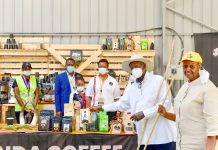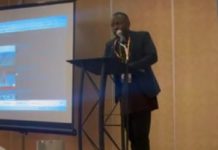The Kenyan Health Ministry has released a list of Frequently Asked Questions (FAQs) in regards to what people living with HIV should know about the novel coronavirus (Covid-19) and the possibility – if any- of them contracting it as well.
The FAQs are as below:
- Are people with HIV at higher risk for COVID-19 than other people?
People with HIV can be at increased risk of getting very sick with COVID-19 based on their age and other medical conditions. The risk for people with HIV getting very sick is greatest in people with a high viral load, and people not on HIV treatment (antiretroviral therapy or ART).
- What can people with HIV do to protect themselves from COVID-19?
There is currently no vaccine to prevent COVID-19. The best way to prevent getting sick is to avoid being exposed to the virus. This includes the following:
- Take everyday preventive actions to help prevent the spread of COVID-19.
- Take your ART medication daily, correctly and consistently to achieve low detectable level of viral suppression. This is the best way to keep your immune system healthy.
- Make sure you have at least a 30-day supply of your HIV medicine and any other medications you need for managing HIV.
- Talk to your health care provider about multiple month dispensing of HIV medicines.
- If you have stopped taking your HIV medication or are currently out of medication, contact your nearest health facility to collect your HIV medication refill immediately.
- People with HIV should continue to maintain a healthy lifestyle. This includes eating right, getting at least 8 hours of sleep, and reducing stress as much as possible
- Always have the health facility emergency contact information with you and communicate with your provider by phone or text.
- Stay socially connected and mentally healthy by maintaining a social network remotely.
- What should I do If I think I might have COVID-19?
Call your health care provider if you develop symptoms that could be consistent with COVID-19. The following symptoms may appear 2-14 clays after exposure;
- Fever
- Cough
- Shortness of breath
Follow the steps below if you get sick:
- Stay home except to get medical care
- Separate yourself from other people in your home
- Call ahead before visiting your doctor and tell them you have or may have COVID-I9
- Wear a facemask
- Cover your coughs and sneezes: and wash hands immediately. If soap and water are not available, clean your hands with an alcohol-based hand sanitizes that contains at least 60% alcohol
- Clean your hands often
- Avoid sharing personal household items
- Clean all commonly touched surfaces everyday
- Monitor your symptoms
- Can HIV medicine (ART) be used to treat COVID-19
There are no data available yet from research that HIV medicine can help people with COVID-19.
People with HIV should not switch their HIV medicine to prevent or treat COVID-19.
Everyday Preventive Actions to Help Prevent the Spread of COVID-19
Take Steps to Protect Yourself
- Clean your hands often
- Wash your hands often with soap and water for at least 20 seconds especially after you have been in a public place, or after blowing your nose, coughing, or sneezing.
- If soap and water are not readily available, use a hand sanitizer that contains at least 60% alcohol. Cover all surfaces of your hands and rub them together until they feel dry.
- Avoid touching your eyes, nose, and mouth with unwashed hands.
- Avoid close contact
- Avoid close contact with people who are sick
- Avoid shaking hands
- Put distance between yourself and other people if COVID-19 is spreading in your community. This is especially important for people who are at higher risk of getting very sick.
Take steps to protect others
- Stay home, except to get medical care.
- Cover coughs end sneezes.
- Cover your mouth and nose with a tissue when you cough or sneeze or use the inside of your elbow.
- Throw used tissues in the trash.
- Immediately wash your hands with soap and water for at least 20 seconds.
- If soap and water are not readily available. clean your hands with a hand sanitizer that contains at least 60% alcohol.
- Wear a facemask if you are sick
- If you are sick: You should wear a facemask when you are around other people (e.g. sharing a room or vehicle) and before you enter a healthcare provider’s office.
- If you are NOT sick: You do not need to wear a facemask unless you are caring for someone who is sick (and they are not able to wear a facemask).
- Clean and disinfect
- Clean AND disinfect frequently touched surfaces daily. This includes tables. doorknobs, light switches. countertops. handles. desks. phones. keyboards. toilets. faucets. and sinks.
- If surfaces are dirty, clean them: Use detergent or soap and water prior to disinfection.
(Source: Ministry of Health, Kenya)





















